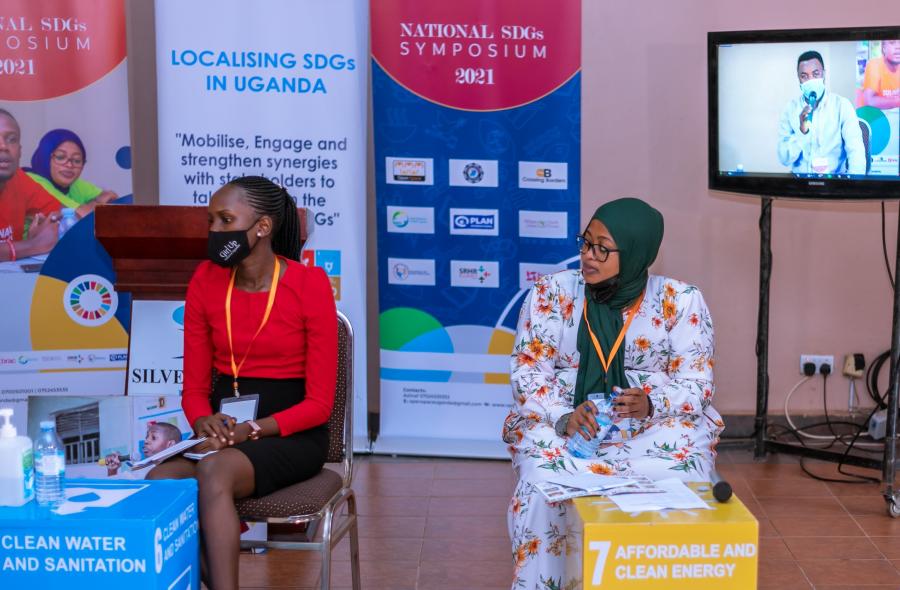
Translate the SDGs into Local Languages to Heighten Localization
6 years down the road, the SDGs have 9 years of implementation if they are to be achieved by 2030.
Annually, the SDGs are commemorated in September during the Global Week of Action and this year the GWA was celebrated from 17th to 28th September 2021. On 30th September 2021, UNNGOF in partnership with Open Space Centre organized the National CSO-SDG Symposium at Silver Springs Hotel, Bugolobi to commemorate the SDG Week.
The hybrid event brought together over 100 physical and virtual participants under the theme; “Increasing the Volume of the SDGs”. The event brought with it exciting results and enthusiastic discussions, which allowed to recreate the lively atmosphere these symposia have always had in the past. The kick-off of the symposium was gradual with introductions from the participants that attended physically, opening remarks from Mr. Ronald Matanda the Head of Programs UNNGOF, who presented the key findings, results and recommendations from the online survey. The symposium also reflected the NGOs and CSOs that participated in the validation of the online survey report on SDGs.
Several benefits come with the timely implementation of the SDGs, but one won’t know about them unless you become aware of them first. Hence CSOs ought to embrace collective advocacy and galvanize the agenda. Uganda is 50% towards achieving the SDGs by 2030, ranking it 18th out of the 52 African countries, which shows that the nation is on track and hence improvement is reported.
Therefore, in order to strengthen SDGs implementation, integration, and collaboration, the government has reviewed an SDG framework and roadmap. Uganda has been very deliberate right from the start in achieving and integrating SDGs within the National agenda, as the 169 actions and indicators all provide a framework for the achievement of the 17 SDGs.
The symposium provided an opportunity for exciting discussions and detailed dialogues on the role of youth elected leaders in SDG localization, opportunities provided by the Parish development model in localizing the SDGs, creation of interlinkages for SDG acceleration, Disability inclusion in SDG localization among others. Participants were also provided an opportunity to share their perspective on how we can ensure the acceleration of SDGs in Uganda especially focusing on the inclusion of youth, religious leaders and media.
Therefore, the need for deeper localization was underscored through translating the SDGs into local languages. “The only initiative wanted is to localize SDGs to be understood by people at the grassroots level and promote gender equality, the closure of schools left many young girls and women victims to gender-based violence, early pregnancies and child labour, therefore these categories of people all need to be reached out to in order to promote SDGs agenda in society,” a participant noted.
Finally, as we implement the Decade of Action of achieving the SDGs by 2030, various stakeholders from different walks of life, including the Government pledged to work collectively to ensure that the SDG mantra of “Leaving No One Behind” becomes a realization.
The event was officiated by the Rt. Hon. Justine Kasule Lumumba, the Minister of General Duties Office of the Prime Minister and the Focal Point Minister for the SDGs in Uganda. She pledged to work with Civil Society to ensure that citizens are supported to rise out of poverty but also ensure that the SDGs are localized and achieved.



